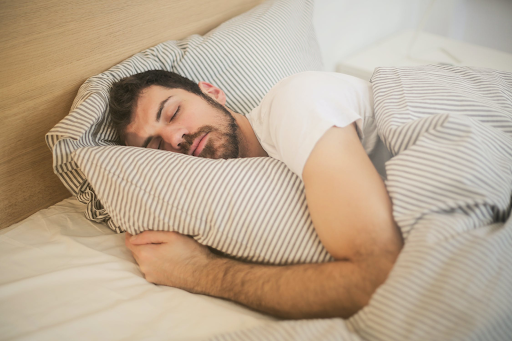Sleep provides the opportunity for your body and your mind to rest. Getting enough quality sleep is essential for a variety of reasons, including the regulation of your immune system and metabolic functions. While you are sleeping, your body also rebuilds muscles, and your mind processes emotions and commits experiences to memory.
Sleep deprivation can be damaging to the body physically, increasing the risk for heart disease, obesity, and some types of cancer. It can also take a toll emotionally and mentally as lack of sleep is linked to irritability, isolation, anxiety, depression, and other mental health disorders.
Adults generally need seven to nine hours of quality sleep each night. If you have insomnia, don’t sleep deeply, or have other sleep problems, changing your routine can help you get the rest you need and make a positive impact on your mental health. Read on for pertinent information on how to make this happen, courtesy of Warida Wholistic Wellness.
Stick to a Schedule
If you have trouble falling asleep or staying asleep, you should go to bed at the same time and wake up at the same time, every single day. Yes, even on weekends. The only way for your body and mind to truly stay in a sleep routine is to stick to the schedule without fail.
Exercise Daily
Regular physical activity can reduce the time it takes for you to fall asleep, as well as increase the depth of your sleep. Exercising every day improves physical health, reduces stress, and increases endorphins, which can boost your mood and reduce anxiety.
Your mental and physical health are interwoven, and keeping your fitness routine up can greatly influence your slumber. Therefore, you should get plenty of daily exercise — but not necessarily in the evening. If you exercise later in the day, Harvard Health Publishing explains the adrenaline and endorphins may actually keep you awake at night, so aim for a morning or early afternoon workout.
Reduce Blue Light Exposure
Research shows that blue light, which is emitted from computers and smartphones, suppresses melatonin – the hormone which helps you fall asleep and stay asleep. Reduce your exposure to blue light in the evening by avoiding electronics two hours before going to bed. You can also wear special glasses or use an app like Twilight to block blue light as well.
Cut the Caffeine
In order to get your best night’s sleep, avoid caffeine consumption late in the day. Caffeine stimulates your nervous system, keeping you from relaxing. A study from the Sleep Disorders & Research Center at Henry Ford Hospital in Detroit showed that even consuming caffeine six hours before going to bed can significantly inhibit sleep.
Get a Massage
You probably won’t be too surprised to learn that getting a massage can help you sleep better. After all, it can help you relax, soothe your muscles and joints, and just help you feel better overall. But some research suggests that your routine massage can do even more to help you snooze; it appears that a good massage can help your body adjust hormone levels for better slumber, so if you’re struggling to get a good night’s rest, it might be time to engage a professional massage therapist.
Make Your Room Comfortable
Making your body more relaxed and comfortable for sleep extends beyond direct care. You can take other steps to make your bedroom more comfortable and suitable for sleep, too. Remove all distractions and negative influences, such as clutter, the television or exercise equipment, and keep your room cool and dark. Use a blanket or comforter that is not too heavy, and pillows that are your preferred firmness. If necessary, add blackout curtains to block as much light as possible. If you co-sleep with your child, you may also want to rethink that decision. Though bonding with your baby is important, you can’t be a good parent if you don’t get any sleep. Keep pets out of your bed, if possible.
A good night’s sleep every night is vital for your mental and physical health. By making changes to your sleep schedule, evening routine, and bedroom, you can fall asleep quicker and stay asleep longer.
Photo via Pexels

